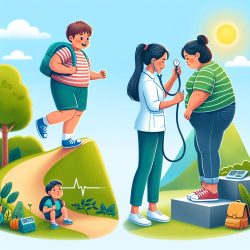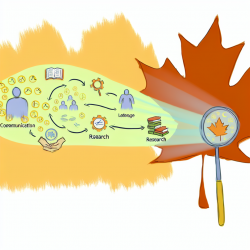Introduction
As practitioners dedicated to fostering optimal outcomes for children, understanding the multifaceted aspects of health-related quality of life (HRQoL) is crucial. The research article titled Impaired parent-reported health-related quality of life of underweight and obese children at elementary school entry by van Grieken et al. (2012) offers valuable insights into how weight status affects children's physical health and well-being as they begin their educational journey.
Key Findings
The study involved 3,227 parent-child dyads and utilized the Child Health Questionnaire Parent Form 28 (CHQ-PF28) to assess HRQoL. The results indicated that both severely obese and underweight children had significantly lower scores on the physical summary scale compared to their normal-weight peers. Interestingly, there were no significant differences in the psychosocial summary scale scores across different weight categories.
Parents of overweight and severely obese children reported statistically significant lower scores on the physical functioning profile scale, highlighting the physical challenges faced by these children. The study did not find significant differences in psychosocial functioning, suggesting that physical health concerns are more pronounced at this age.
Implications for Practice
For practitioners, these findings underscore the importance of early intervention and holistic approaches to child health. Here are some actionable steps to consider:
- Monitor Physical Health: Regularly assess the physical health and development of children, particularly those who are underweight or obese, to identify potential issues early.
- Promote Physical Activity: Encourage physical activities that are suitable for the child's abilities and interests to improve physical functioning and overall HRQoL.
- Collaborate with Parents: Engage parents in discussions about their child's health and provide them with resources and strategies to support healthy lifestyle changes at home.
- Interdisciplinary Approach: Work closely with other professionals, such as nutritionists and pediatricians, to create comprehensive care plans tailored to the child's needs.
Encouraging Further Research
While this study provides important insights, it also highlights the need for further research to explore the psychosocial aspects of HRQoL in young children. Understanding how psychosocial factors evolve as children grow older can inform more effective interventions.
Practitioners are encouraged to contribute to this body of research by conducting longitudinal studies and exploring innovative approaches to enhance HRQoL in children with diverse weight statuses.
Conclusion
The research by van Grieken et al. emphasizes the critical role of weight status in determining the physical health-related quality of life in young children. By integrating these findings into practice, practitioners can better support the holistic development of children, ensuring they have a healthy start to their educational journey.
To read the original research paper, please follow this link: Impaired parent-reported health-related quality of life of underweight and obese children at elementary school entry.










